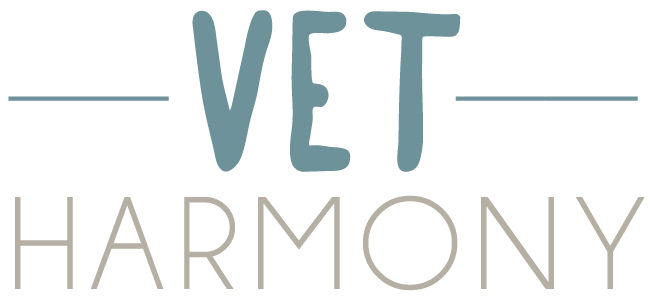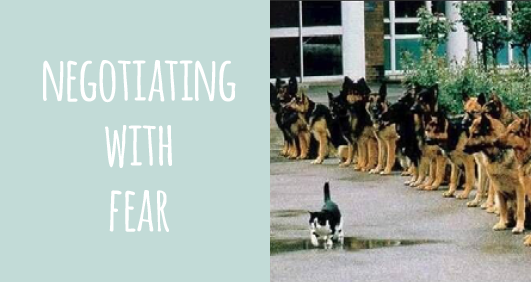Today I want to share with you an unexpected effect that happened to me after I started my advanced coaching course that caught me off guard.
As you know if you read the last blog, this course was a big decision that took me 3 years to make, so going into the start of it in March I had an understandable mix of feelings.
Predominantly they were of excitement, relief to have made the decision, curious as to what would be coming, open-minded and looking forward to learning again.
There was naturally also a bit of mild trepidation. The sort of normal ‘fear of the unknown’ when you are going to meet new leaders and colleagues you don’t yet know, and start a venture that you hope will pan out to be a good choice but you don’t yet know whether it will be or not. But it was very mild.
Then we had our first 9-hour session.
It went brilliantly. The Master Coach leading us was amazing, and the 7 other delegates proved to be lovely as well and it felt like a safe, welcoming space.
During the session, we had to break off into smaller groups and practice the coaching techniques we were learning on each other while being observed and given feedback.
We also learned more about the 30min coaching session with one of our own clients that we would need to record, transcribe word-for-word and send to our leader for assessment and feedback each month to be graded against the 40 or so metrics the ICF examine you on.
Gulp! 🙀
Even though I had actively chosen this course and was very much wanting to do this, as I want to really deepen the coaching element of the coaching/mentoring/training mix that I use in my practice, I wasn’t prepared for just how wobbly this was going to make me feel!
I’d expected mild nerves. I hadn’t expected to feel like my applecart was well and truly upended emotionally and physiologically for 2 or 3 weeks!
When we step quite a long way outside our comfort zone when we’re looking to make a change or grow, it can often subconsciously trigger old patterns that we thought we’d dealt with.
My conscious mind was totally down with the stretch and very much up for it.
My subconscious mind however had firmly twisted its knickers in a knot and up came The Fears.
This happens to all of us.
Our irrational Fear whispers incessantly in our mind’s ear. During those 2 to 3 weeks, mine was whispering things like:
You’re afraid.
You’re afraid you won’t be able to do it.
You’re afraid all the other delegates will be way better than you.
You’re afraid the leader will tell you you’re not in fact advanced enough to be on this course.
You’re afraid of being judged when you coach while being observed.
You’re afraid when it’s your turn you’ll clam up and nothing will come out.
You’re afraid you will actually discover you have no skill.
You’re afraid of feeling embarrassed and vulnerable as you practice new skills.
You’re afraid to publicly not ‘be the best’ straight away
You’re afraid that you DO have an upper limit of what you’re capable of and that by stretching yourself in this way you might find out where that limit is and you’d rather not know.

The effects of this unexpected diatribe from my subconscious mind was that although I felt elated and excited by starting the course, I was also a bit of a tearful mess too. Not sleeping well and hardly able to eat – classic signs of stress and anxiety for me.
If you find yourself judging me at all at this point (even just a tiny bit…) and seeing these things as weakness, it’s ok.
I used to be a bit judgemental too until I realised that the reason I was judging was not because I was a harsh or unkind person. I was equally as hard, unforgiving and applying unrealistic perfectionist expectations to myself, and we don’t permit in others what we don’t let ourselves be or do usually.
I’ve found that as I’ve worked to reduce my perfectionism and increase my self-compassion that my judgement of others has melted away, and I’m now more likely to feel shared common humanity and solidarity with others, and to see strength where I once saw weakness.
Alternatively, you might be thinking, “Thank God it’s not just me who feels those sorts of things!” and that’s fine too!
So how did I deal with this unexpected reaction?
Firstly, I recognised that I’d been triggered, and that my reaction was indicative of something I needed to pay attention to.
I observed how my body and mind were responding with curiosity and self-awareness without judging myself.
I supported myself physically and emotionally while I processed how I was feeling and rebalanced myself.
Rather than backing away, or giving up, or thinking that it shouldn’t be feeling this hard, I held myself gently in the space of discomfort.
I kept taking action and saying yes to things when I wanted to back off and not put myself out there, even though I wasn’t sure if I could do it.
I reminded myself that it’s ok to struggle and fail while you’re learning, in fact you’re unlikely to be actually truly learning anything unless this is happening.
I talked to my own coach and have arranged some additional support while I make this transition rather than battle it out alone.
 Thankfully, like most emotional reactions, it’s passed now. I feel stronger, more empowered and it’s reminded me that I can tolerate discomfort and uncertainty in order to learn.
Thankfully, like most emotional reactions, it’s passed now. I feel stronger, more empowered and it’s reminded me that I can tolerate discomfort and uncertainty in order to learn.
Letting go of the need for certainty and cultivating faith, trust and intuition was the topic of May’s monthly mindset masterclass I did yesterday for my Crossroads membership, and it was good to have a recent personal reminder of this when preparing.
Finally, I’m already seeing the beneficial effects of what I’m learning showing up in how I’m upleveling my one-to-one coaching which makes it all worthwhile and is very exciting!
In comparing this to how I might have reacted several years ago, it made me realise that I have renegotiated the terms of my relationship with Fear.
I have accepted that it will be ever-present to some degree rather than wish it would go away completely or feel that true bravery would be not having fear.
When it rears its head, I see that as a signal to get curious and lean into the fear and take some time to see what messages it has for me.
I recognise that fear will trigger old patterns that I have generally dealt with, but that may need re-settling in times of peak fear and this is ok. It doesn’t mean I ‘failed’ in my previous personal development work.
I have waaaay more tools in my armoury for settling fear back down again – support from coaches and groups, EFT, journaling, talking to my chosen inner support network of 2 or 3 soul-friends, looking after my diet / sleep / exercise / hormones etc.
Biggest tool though? Self-compassion on steroids.
Zero judgment or beating myself up for feeling the fear.
The fact that I can recognise it, not numb it away, be willing to sit with it and move through it takes guts and courage and I choose to give myself love and credit for being brave enough rather than beating myself up for feeling fearful.
I’m also compassionate on the days when I can’t overcome the fear and I do numb/hide/not feel like facing it.
Tomorrow is a new day and I get to see how I feel and choose to be brave when I can.
So as you reflect on the above, can you tune in and ask yourself what you’re feeling most fearful of in your life currently?
~ Get curious about what that’s really about.
~ If you removed that fear, how would that feel and what actions would you take if you weren’t feeling it?
~ What does that tell you about what you really want for yourself underneath the fear?
~ How can you support yourself to feel the fear and take the next step anyway?
If I can help in anyway, reach out and let me know.
P.S. I’ve had a space open up in my one-to-one coaching which was previously fully booked until July, so if you’re looking for deep support and transformation find out more here.
For other ways to work with me from as little as £33/month, click here.

